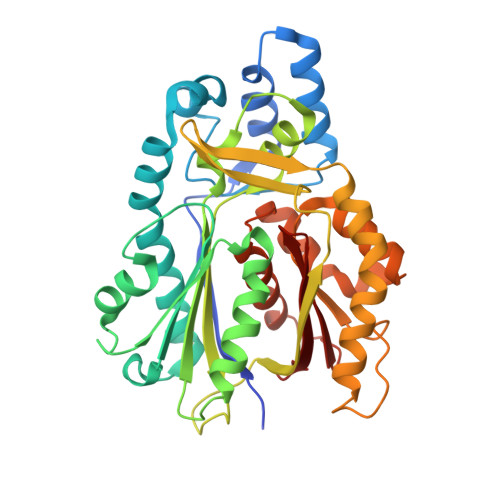Biosynthesis of Dictyostelium discoideum differentiation-inducing factor by a hybrid type I fatty acid-type III polyketide synthase.
Austin, M.B., Saito, T., Bowman, M.E., Haydock, S., Kato, A., Moore, B.S., Kay, R.R., Noel, J.P.(2006) Nat Chem Biol 2: 494-502
- PubMed: 16906151
- DOI: https://doi.org/10.1038/nchembio811
- Primary Citation of Related Structures:
2H84 - PubMed Abstract:
Differentiation-inducing factors (DIFs) are well known to modulate formation of distinct communal cell types from identical Dictyostelium discoideum amoebas, but DIF biosynthesis remains obscure. We report complimentary in vivo and in vitro experiments identifying one of two approximately 3,000-residue D. discoideum proteins, termed 'steely', as responsible for biosynthesis of the DIF acylphloroglucinol scaffold. Steely proteins possess six catalytic domains homologous to metazoan type I fatty acid synthases (FASs) but feature an iterative type III polyketide synthase (PKS) in place of the expected FAS C-terminal thioesterase used to off load fatty acid products. This new domain arrangement likely facilitates covalent transfer of steely N-terminal acyl products directly to the C-terminal type III PKS active sites, which catalyze both iterative polyketide extension and cyclization. The crystal structure of a steely C-terminal domain confirms conservation of the homodimeric type III PKS fold. These findings suggest new bioengineering strategies for expanding the scope of fatty acid and polyketide biosynthesis.
- Howard Hughes Medical Institute, Jack H. Skirball Center for Chemical Biology and Proteomics, The Salk Institute for Biological Studies, La Jolla, California 92037, USA.
Organizational Affiliation:

















